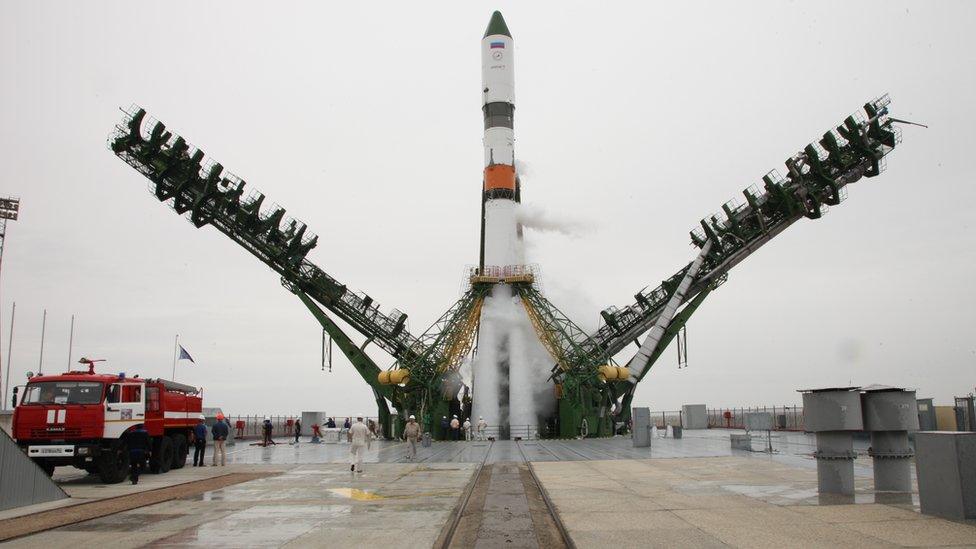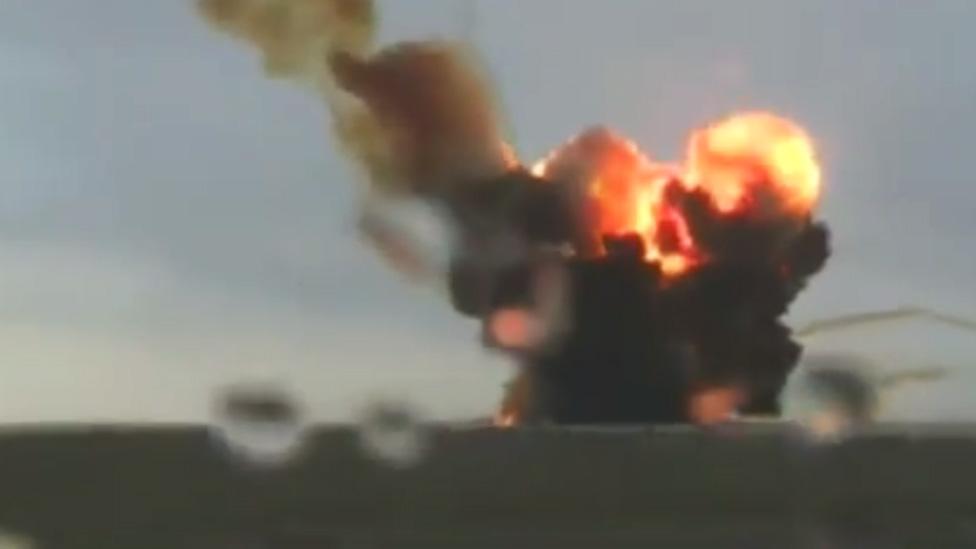Russian space launch death stirs Kazakh resentment
- Published

The Progress MS-06 mission on the pad at Baikonur atop a Soyuz launch vehicle
Kazakhs have aired their frustration over the Russia-operated space launch facility on their territory after a Kazakh worker was killed clearing up the aftermath of a recent launch.
The launch of the Progress MS-06 supply mission to the International Space Station on 14 June from the Baikonur space centre in Kazakhstan has been touted as a technical success by Russian operator Roscosmos, external.
But as the TASS news agency reports, external, an employee of the Russian company tasked with overseeing the areas where the rocket stages of the Soyuz-2 1a launcher fall to Earth was killed while trying to extinguish a fire on the local steppe.
The Kazakh Tengrinews, external website says the fire at the drop site near Zhezkazgan, some 600 km (375 miles) from the launch site, was caused by the falling rocket fragments.
Bone of contention
News of the man's death was met with dismay from Kazakh social media users. "Russia is launching its rockets and our people are running around in their own land and putting out fires. It is ridiculous," said one user. Another blamed Russia for the death: "It would be better if the rocket had fallen on the Kremlin."
The continuing presence of the Russian cosmodrome at Baikonur remains a bone of contention among some Kazakhs. Its location in the centre of the country means that anything falling to Earth - either intentionally or by accident - will land somewhere in Kazakhstan.
When a Proton rocket carrying 600 tons of toxic rocket fuel exploded seconds after launch, external in 2013, a local environmentalist told Russia's Interfax news agency that "the relaxed nature of our Kazakh government" was one of the reasons that Kazakhstan bore the brunt of Russian space failures.
"They leased out the space centre as if it were a barn and did nothing afterwards," Mels Eleusizov said at the time, "It is a shame on our country."
Russia's new Vostochny Cosmodrome in the Russian far east is expected to reduce the country's reliance on Baikonur within the next decade.

The 2013 Proton-M rocket explosion caused pollution fears in Kazakhstan
Reporting by Alistair Coleman
Next story: Georgian political party puffs up its church
Use #NewsfromElsewhere to stay up-to-date with our reports via Twitter, external.